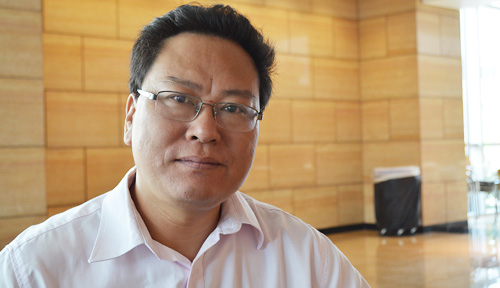We’ve heard much about why it is important for UNMC to establish collaborative relationships with China and others in the international science community.
But what about the reverse? Why are China and Chinese scientists excited about collaborating with the United States and with UNMC?
Yong Zhao, M.D., Ph.D., is a professor of transplantation biology research at the Institute of Zoology, Chinese Academy of Sciences (CAS). He returned to China after serving four years as an assistant professor in surgery and the department of pharmacology and experimental neuroscience, where he retains his title and continues his research on a part-time basis.
In August he attended the eighth annual International Student Research Forum at UNMC — the second time the med center has been host – with 75 students from China, Australia, Japan and the U.S. He also attended the fourth annual Joint Research Symposium, which fosters collaboration among UNMC and Chinese investigators.
Dr. Zhao answered the question with an allegory – the chair he was sitting in. He said one person could probably move it by himself.
“But if we have to move a bigger chair,” he said, gesturing toward the loveseat to his left, “we might need two people. Or four people.
“You have to collaborate,” he said.
Science is full of big chairs.
Dr. Zhao collaborates with UNMC’s Jialin Zheng, M.D., professor of pharmacology and experimental neuroscience and assistant vice chancellor for academic affairs. They recently published a paper in the Journal of Immunology, “Transcription factor FOXO3a mediates apoptosis in HIV-1-infected macrophages.”
Dr. Zhao also is a UNMC/CAS liaison during trade missions between the two countries.
Dr. Zhao noted that he’s had a few of his students visit UNMC — some supported by the Chinese, some backed by principal investigators’ grants here.
Of those, one Ph.D. went back to China and became an associate professor. Two more are doing research as postdocs in the United States.
